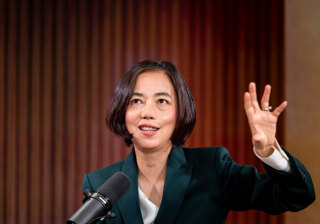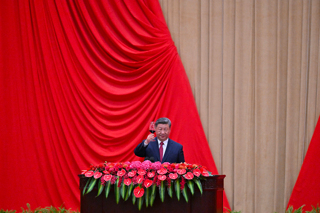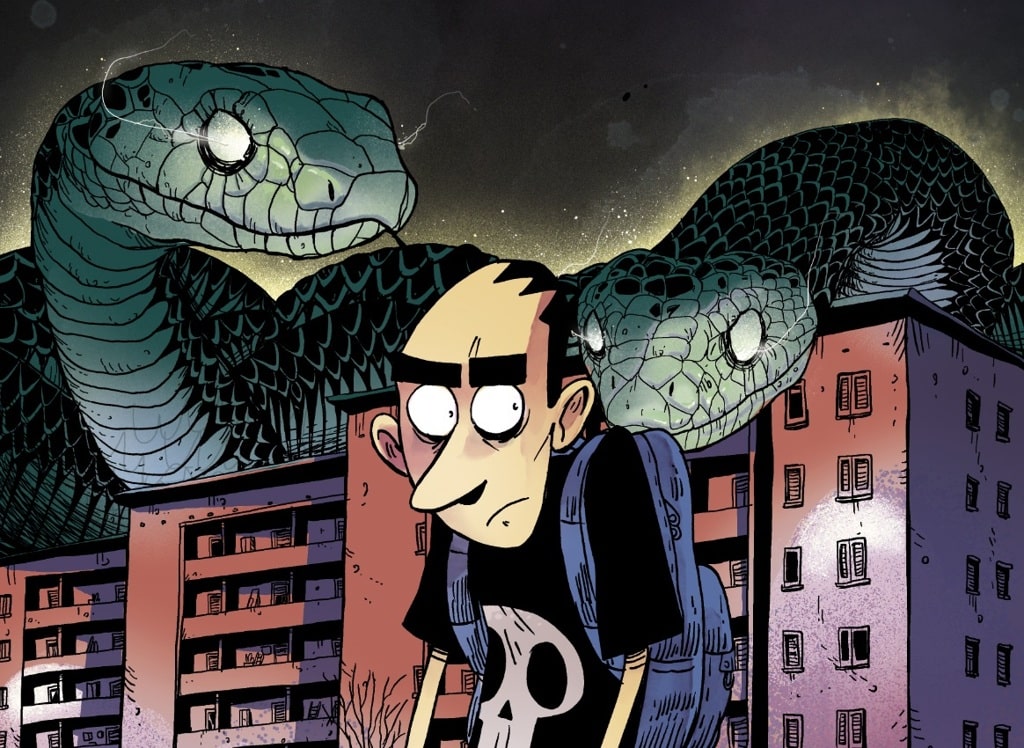Questo articolo nasce dal lavoro comune di un gruppo di giornali europei, Europe’s far right research network, in vista delle elezioni europee 2019. Ne fanno parte, oltre a Internazionale, Falter (Austria), Gazeta Wyborcza (Polonia), Hvg (Ungheria), Libeŕation (Francia) e Die Tageszeitung (Germania). Questa è la traduzione in inglese dell’articolo uscito in italiano il 23 novembre.
Romeo and Juliet may have never actually existed, but every year thousands of tourists from around the world descend on Verona – a city of 250 thousand inhabitants in North East Italy – to visit Juliet’s house and her grave. They leave love notes in the courtyard of the medieval building famed to be her home and rub the statue portraying the protagonist of Shakespeare’s play set in Verona, one of the most tragic love stories in world literature. But in the last year, Juliet is not the only female literary character to haunt the city’s streets and ancient buildings. In fact, there have been frequent sightings of women dressed in the scarlet cloaks and white bonnets worn by the handmaids in The handmaid’s tale, the novel by Canadian writer Margaret Atwood, which has also been turned into a film and a tv series.
On October 4, while Verona’s city council approved an anti-abortion motion (N.434) introduced by League councillor Alberto Zelger, women from the ‘Non una di meno’ feminist movement listened to the debate in silence. They were dressed in red outfits and white bonnets just like the women in Atwood’s dystopian novel, a uniform that has come to symbolise women’s fight against the exploitation of their bodies and attempts to limit freedom of choice.
“We had to protest in silence, we couldn’t take placards because they would have ejected us from the council meeting”, explain Laura Sebastio and Francesca Milan from the Verona branch of the ‘Non una di meno’ collective. I meet them in a basement bar round the corner from Juliet’s house, l’Osteria dei Preti, a meeting point for citizen resistance targeted by local neo-fascist groups several times.
“We were inspired by protests against similar measures in several states in the USA, for example Texas”, they continue. The Italian activists’ costumes attracted national media attention for what was happening in Verona, but the anti-abortion motion passed anyway, with 21 votes in favour and six against. It was even backed by the leader of the council’s Democratic Party group, Carla Padovani.
“Even though the abortion service is working pretty well in the city, with conscientious objectors amounting to 70 of medical staff], we are worried that in the future the Catholic pro-life organisations will try to enter the city’s clinics”, explains Maria Genneth, a gynaecologist and President of the Italian Association for Demographic Education (AIED) in Verona. The city’s mayor asked for her organisation to be excluded from the city’s Council for the Family; it was only allowed to participate again after appealing to the regional administrative court.
So, on the 40th anniversary of the introduction of Law 194, which legalised abortion in Italy in 1978, the council in Verona approved a measure “to prevent abortion and support maternity”, declaring itself “a pro-life city”. What’s more, the authority has allocated “substantial funding” for Catholic anti-abortion organisations, such as the Gemma, Chiara and Culla Segreta projects, which support women financially so they will not go ahead with an already planned abortion. According to data from the Italian Ministry of Health, the number of abortions in Italy have actually more than halved since Law 194 was passed. But Italian pro-lifers, with close connections to traditional Catholic circles, claim the legalisation of abortion is one of the causes of Italy’s low birth rate.
League councillor Zelger, who was the first to sign the motion in Verona, previously supported a crusade against gender in other words against same-sex marriage] in July 2014, “in defence of the natural family”. In an interview with Radio24 he stated, “Abortion is not a right, it is an abominable crime. My example is Putin’s Russia, where abortions have dropped from four million a year to two, thanks to maternity subsidies”. His views are shared by Italy’s new Minister for the Family, Lorenzo Fontana, also a member of the League party who originally comes from Verona. As Councillor Zelger noted in his interview, “If it was up to me, Law 194 on abortion should not exist. I’m against abortion and totally aligned with the position held by Minister Fontana. It means killing a child in its mother’s womb”.
Minister Fontana is deputy federal secretary of the League, a former deputy mayor of Verona and an MEP. He is also a personal friend of League leader Matteo Salvini, who was best man at his wedding. In his first newspaper interview after taking office, given to Corriere della Sera, Fontana (38) stated that one of the priorities of his mandate is to increase the birth rate in Italy and to fight abortion. He said, “I want to intervene to boost clinics, to try to dissuade women from aborting. I’m a Catholic, I don’t hide it. And this is why I believe that the family is the natural family, where a child must have a mother and a father”. In the same interview he declared that same-sex marriages could not be called families.
The Minister has even written a book on the subject of abortion, together with banker and traditionalist Catholic Ettore Gotti Tedeschi, entitled La culla vuota della civiltà. All’origine della crisi (2018), with a foreword written by Matteo Salvini, now Deputy Prime Minister. The book was also presented at a conference during the Festival for Life, held in Verona on 17 and 18 February 2018 under the patronage of the local authority. The event, hosted in one of the city’s most important buildings, featured the participation of major international anti-abortion campaigners, such as the French paediatrician and president of the Catholic association SOS Tout Petits, Xavier Dor, and Austrian doctor and pro-life activist Bernhard Gappmaier, President of the World Federation Of Doctors Who Respect Human Life.
Fontana’s anti-abortion position is stated very clearly in the book, quoting figures released by pro-life movements: “From 1978 to date (legal) abortion has prevented the birth of six million Italian children. We stress this is also because of a certain political culture, dear to the left, which demonises conscientious objection and prefers to eradicate life rather than act on the system of clinics and to prevent abortion more generally. The Spanish based Institute for Family Policies has calculated that the number of abortions in the countries of a (so-called) “united” Europe - amounting to 1,207464 – is equivalent to the drop in the European birth rate”. The Institute for Family Policies is described in the book as an independent study centre; it is actually a think tank linked to conservative Catholic circles in America.
“It is also worth noting the profile of Fontana’s co-author, Ettore Gotti Tedeschi”, adds journalist and writer Valerio Renzi, author of the book La politica della ruspa. La Lega di Salvini e le nuove destre europee. “He is known for being close to Pope Benedict XVI, he’s a banker and a former President of the Institute for Religious Works, in other words the Vatican bank.Tedeschi belongs to the more radical wing of the Catholic Church that is hostile to Pope Francis; the most traditional, rigid, anti-modernist and antagonistic faction”. Valerio Renzi concludes, “This all reveals the twofold relationship the League has always had with the church: on the one hand, it opposes values of welcoming the stranger and solidarity expressed by part of the Italian Catholic tradition, and on the other hand, it appeals to religion and its symbols as building blocks to create a national tradition, with a capital N, that is opposed to others, especially Muslim migrants”.
A testbed for the far right
Verona’s anti-abortion motion was immediately taken up by other Italian cities – including Milan, Rome, Ferrara, Trieste and Sestri Levante – who copy-pasted the text of the Verona motion and tried to get it passed at their own council meetings. “All these motions are based on a strategy and an ambiguity that their promoters, many politicians and also some newspapers are trying to foment. The trick is that the motion says it wants the complete application of Law 194, while supporting associations with links to movements fighting for the very same law to be revoked”, explains Post journalist from Verona, Giulia Siviero.
She believes the aim of these motions is chiefly symbolic. Through these measures, the far right and the traditionalist Catholic world are trying to assert the principle that anti-abortionists want Law 194 to be fully applied, in that they want Catholic groups to go into clinics to convince women not to go through with an abortion, “as if financial issues were the only considerations behind the decision to terminate a pregnancy”, notes Siviero.
Verona has been a testbed for policies against same-sex marriage and abortion for years. The city has also witnessed a fairly explicit connection between traditionalist Catholic circles, those of the far right and those from the institutional right, currently represented by Matteo Salvini’s League. “Fontana is a home-grown product”, says Emanuele Del Medico, author of the book All’estrema destra del padre. Tradizionalismo cattolico e destra radicale.
For some time he has asserted that Verona is a kind of testbed for the far right, “a paradigm” is how he defines it. “The far right was very strong in the city historically. Verona was one of the capitals of the Italian Social Republic, it was the base for the Gestapo’s headquarters during the war and in the 1970s, all factions connected to right wing subversive forces passed through it: from the Rosa dei venti grouping to general Amos Spiazzi, Franco Freda and the Fronte nazionale, Ordine Nuovo and the Ludwig neo-Nazis”, explains Del Medico.
One of the League’s main spokesmen in the Veneto region used to be former mayor of Verona, Flavio Tosi (before he had a major falling out with Salvini). The party in this region maintains a two-pronged relationship with both the extra-parliamentary far right and with the traditionalist Catholics. For years, one of Tosi’s advisors was Andrea Miglioranzi, lead singer of Gesta Bellica, a Nazi-rock group from Verona with links to the Veneto Fronte Skinheads.
“There is a photo taken at Verona’s Family Day in 2015 that clearly shows this closeness”, reveals Del Medico. “Posing in front of the event’s official banner we see the current Family Minister, Lorenzo Fontana standing with Matteo Castagna, founder of the extremist Catholic group Christus Rex, which has connections with the neo-fascist party Forza Nuova. The pictured group also includes Verona’s current mayor Federico Sborina, Forza Nuova’s coordinator for the North, Luca Castellini, and Verona city councillor for security, Daniele Polato”.
In a medium-sized city like Verona, extra-parliamentary groups and institutional politicians live in close proximity. “What’s more, these people don’t just share the same militant approach, they are also passionate fans of the same football team. They meet up every Sunday in the stadium’s southern stand to follow Hellas Verona”, explains Del Medico.
Verona’s football ground has always been a magnet for the local far right. In July 2017 there was much consternation about slogans chanted by fans during a Hellas Verona party: “We are a fantastic team, formed in the shape of a swastika”. Shortly before the singing began, Luca Castellini, Forza Nuova coordinator, stood on stage to incite the chanting, saying: “The person who enabled this party, who paid for everything, who acted as a guarantor, he has a name: Adolf Hitler”. And while Emanuele Del Medico notes that the football stadium has always been a focal point for the far right in Verona, “The thing is that right now, a phenomenon we have been complaining about for years risks developing a national dimension with Lorenzo Fontana’s appointment as Family Minister”.
The congress of families
Another example of this trend is Matteo Castagna from Christus Rex, who has recently written a book called Cattolici tra europeismo e populismo, presented in Verona by Alberto Zelger, the same city councillor who promoted the anti-abortion motion. The book was also presented in Rome on 26 November, this time in the Italian parliament’s Chamber of Deputies.
Moreover, on the day when women’s group Non una di meno organised demonstrations throughout Italy protesting against men’s violence against women with the rallying cry “Permanent action”, Forza Nuova was due to meet in Verona to declare the city “The Vendée of Europe” TN: evoking what was the epicentre of the largest counter-revolutionary uprising of the French Revolution]. At the same time, the pro-life group Comitato no194 (of which Fontana is a member) also paraded in Verona calling for a referendum to repeal Law 194 legalising abortion.
Meanwhile, another Family Day organiser and member of Fontana’s party, Simone Pillon, has founded the parliamentary group called ‘Vita, famiglia e libertà’ (Life, family and Freedom), primarily aiming to abolish abortion. It has already signed up 150 MPs of various political persuasions (including Paola Binetti and Maurizio Gasparri). And finally, one of the initiatives being promoted by minister Fontana is the World congress of families (WCF), planned for Verona in March 2019. This congress was created in the USA in 1997 and is a platform for campaigns against abortion, pornography and same-sex unions, and for those in support of the so-called ‘natural family’.
The WCF encompasses various pro-life associations from around the world, funding different initiatives and organising an annual summit, to create an active international anti-abortion network. This year’s Congress was held in Chisinau, Moldova, in September under the support of Moldavian President, Igor Dodon, who has close ties with Moscow. Two conservative Russian oligarchs with links to the Russian Orthodox Church, Konstantin Malofeev and Vladimir Yakunin, have also often been guests at the Congress and in the past they funded pro-life initiatives in the countries of the former Soviet Union and Western Europe.
Malofeev’s business associate, Alexey Komov, is WCF’s official Russian Representative. While Yakunin’s wife, Natalia Yakunina, is head of the ‘Sanctity of Motherhood’ pro-family association, one of the most active in Russia, and she participated in the WCF in Moldova. According to the French news website Mediapart, Malofeev is one of the people behind Marine Le Pen’s Front National party moving closer to Russia. He is always welcome at these anti-abortion events even though he is still on the blacklist of people sanctioned by the European Union and the USA, accused of funding pro-Russian soldiers in Eastern Ukraine.
The Italian associations belonging to WCF include ProVita onlus, Generazione famiglia, Comitato difendiamo i nostri figli and Novæ Terræ. An investigation by Paolo Biondani and Francesca Sironi published in the weekly magazineL’Espresso on 16 November, revealed the Novæ Terræ foundation’s role in recent years. It has tapped Russian funds to organise campaigns against abortion and gay marriage around the world.
For example, in January 2014 this foundation donated 12 thousand euros to Benjamin Harnwell, an ultra-conservative British politician and founder of Dignitatis Humanae Institute (DHI), a Catholic organisation based in the Vatican, in Via delle Fornaci, in Rome. Its supporters include the American traditionalist cardinal Raymond Leo Burke and DHI also has very close links with Steve Bannon, the American far right ideologue and former advisor to President Donald Trump.
League senator Simone Pillon has been a member of Novæ Terræ since 2015. He recently hit the headlines after proposing a law on divorce and custody of under-age children in August 2018, “to guarantee joint custody, direct maintenance and ensure dual parenting”. This proposal was harshly criticised by feminist groups as well as by the authority combatting domestic violence and safeguarding children. In the case of a separation where minors are involved, parents would be forced to pay for a professional mediator to establish a parenting plan with the activities the child must follow. It also forces the child to spend at least 12 days a month with each parent and abolishes maintenance payments for the mother.
On 22 October, the United Nations’ special rapporteurs on violence and discrimination against women, Dubravka Šimonović and Ivana Radačić, sent a letter to the Italian government expressing concern about the bill. In addition, the Women against Violence Network D.i.Re, launched an online petition calling for the proposal to be changed, which has collected more than 100 thousand signatures. On 10 November, thousands of people took to the streets throughout Italy in protest against the bill, being discussed in the Senate.
League senator Pillon will participate in the 13th World Congress of Families in Verona, from 29 to 31 March next year. Both Pillon and Salvini attended the event’s presentation, as well as American Brian Brown. The promoters claimed, “Verona will be the springboard for the counter-revolution of common sense and reason” and that “the wind is changing in Europe”.
Anti-abortionists seem to view Verona as offering a new opening to penetrate Europe. However, some experts believe pro-life politics will not be the theme that seals an alliance between the different right wing parties in Europe, who are launching an attack on the Union’s institutions and want treaty reform, in view of the European elections in 2019.
“These issues were always present in Umberto Bossi’s Northern League, going back to the 1990s”, explains Elia Rosati, professor at the University of Milan and author of various essays on the Italian far right. “But I have the impression they are more part of the older party, not the one now led by Salvini. He won’t use this theme in his strategy for creating an alliance with the other European parties in the run up to the elections”.
“The League’s thinking on these subjects has always been close to that of the Freedom Party of Austria (Fpö) led by Heinz-Christian Strache (Austria’s current vice chancellor), and with the Christian Social Union in Bavaria (CSU). The Front National (FN) in France is strongly steeped in Catholic traditionalism”, continues Rosati. Nevertheless, for the 2019 elections, the key alliances for the League are with far right parties in Northern European countries, like Alternative for Germany (AfD) or the Sweden Democrats.
“Countries with a Protestant tradition are more secular than the League on these subjects. Many leaders of far right parties in Northern Europe are openly gay, or divorced”, notes Elia Rosati. Far right parties in the south and east of Europe have closer ties to the Catholic and Orthodox churches and so focus on anti-abortion and the traditional family. But they don’t have much in common with the far right in Nordic countries. “Even Marine Le Pen has a much more secular approach to these matters than her father because she’s realised they are divisive. I think Matteo Salvini is more modern than the rest of the League hierarchy, even if part of his party is still connected to more traditionalist circles, like those in Veneto”.
According to Rosati, it would be easier to create a more general connection via the battle against gender ideology. “Just consider Viktor Orbán’s Hungary, which has focused on gender and shelved the pro-life fight. Because the crusade against same-sex unions builds another idea of society and social status, and it introduces discriminatory factors into welfare, which is what interests the new far right”.
(Traduzione di Aminda R. Leigh)
Questo articolo nasce dal lavoro comune di un gruppo di giornali europei, Europe’s far right research network, in vista delle elezioni europee 2019. Ne fanno parte, oltre a Internazionale, Falter (Austria), Gazeta Wyborcza (Polonia), Hvg (Ungheria), Libeŕation (Francia) e Die Tageszeitung (Germania). Questa è la traduzione in inglese dell’articolo uscito in italiano il 23 novembre.
Internazionale pubblica ogni settimana una pagina di lettere. Ci piacerebbe sapere cosa pensi di questo articolo. Scrivici a: posta@internazionale.it







